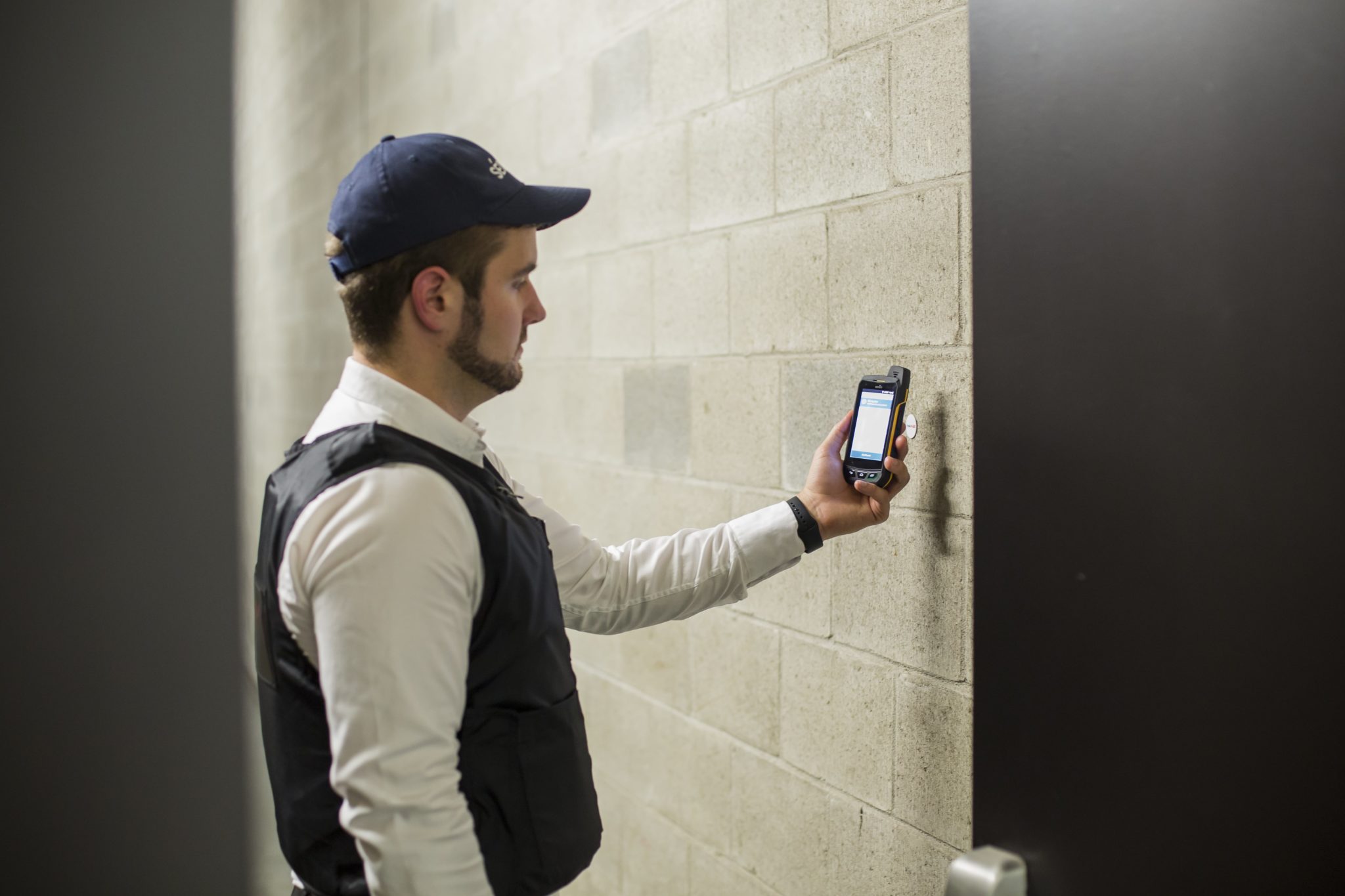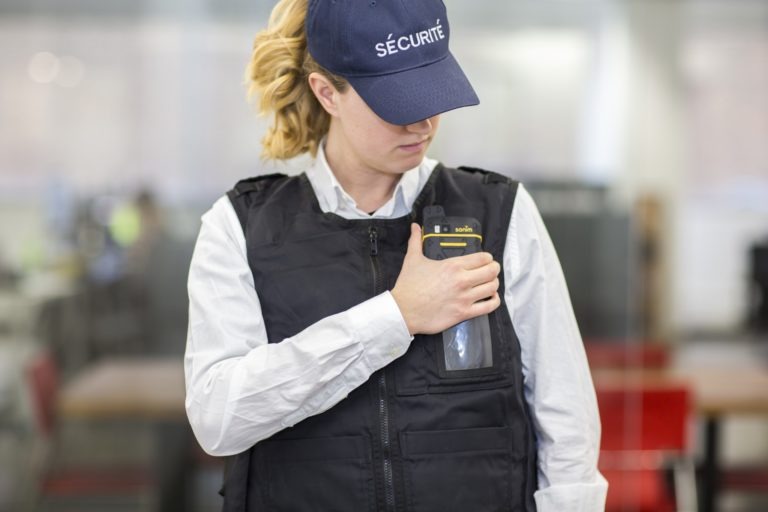During this unprecedented time, security firms in the UK are asking their teams to pivot. From planning the logistics and security for the world’s largest critical care units for treating patients with coronavirus, the NHS Nightingale, to performing free local patrols to client premises during the lockdown to volunteering to assist the elderly, vulnerable or ‘at risk’ individuals who are unable to leave their homes, security companies of all sizes are stepping up to the challenge.
In a few short weeks, the sight of a security guard outside stores has become commonplace to ensure the safety of shoppers, limit the number of people who can enter a shop at any one time, and ensure social, or physical, distancing is maintained in stores. Prior to COVID-19, the retail guarding focus was traditionally aimed towards loss prevention and employee safety, although still an issue, it is no longer its sole focus.
In most supermarkets, markings have been installed to indicate a two-metre spacing distance which customers are asked to observe. Markings have also been installed outside stores so customers queuing to enter maintain safe distances of two metres. Store managers have been given discretion to implement crowd control systems at store entrances to limit the number of customers allowed in stores at any time by positioning security guards at store entrances to help support this new policy.
FGH Security Ltd., a manned security company specialising in event security, door supervision, and training solutions, was originally contracted to deploy over 190 crowd management operatives to the Manchester Marathon. The company is now providing security personnel to hundreds of supermarkets across the country to assist with crowd management, ensuring social distancing is respected, and making sure the NHS, the elderly, and key workers get access to their shopping hour.
Patrolling, key-holding, incident assistance, high-risk product protection to prevent theft, and worker welfare checking are only a few of the roles security guards routinely fill. But with most high streets and retail parks now shuttered, there has also been an increase in the need for mobile patrols in the UK to ensure the security of empty and closed commercial, retail, or office premises, CCTV monitoring, and the provision of alarm response centres including mobile units. Additional security patrols are also required to ensure that fire alarms systems are kept in check and to confirm whether alarms are real or false.
Covent Garden Market, who closed its doors over COVID-19 concerns on March 18, 2020, will open its doors as a supermarket this week to service Londoners in the downtown area. Although drastic changes have been made to the market, such as removing all seating and changing to takeout options only to keep customers safe, the market will have security guards screening people before they go in and keeping track of numbers to control crowds.
Fortunately, some security companies were already equipped to meet the new challenges posed by the COVID-19 coronavirus before its outbreak. Thanks to new and improving security software, clients can have clear visibility into what’s happening at a vacant site through their own client portals. If an incident should occur, instant notifications are also sent and received by the appropriate person. Finally, the head office can communicate up-to-date COVID-19 (or other) information directly with teams on sites via message boards. If instructions change, information can be sent through updated post orders, and verified if the new instructions are acknowledged. It is precisely this kind of future-proof technology that is helping keep security guards safe as they work to keep the world a safer place. By adopting readily-available technology such as cloud applications that are optimised via cellular networks, security firms can be more efficient and increase the value of the service that they provide.
Whilst security guards may not be recognised as often as frontline heroes like the medical personnel working in the NHS, security guards in the UK are key workers, working behind the scenes to support critical UK infrastructure. Please don’t forget to recognise these outstanding women and men and the crucial work they are doing to keep everyone safe and secure on social media using #frontlinesecurity to show them we care.


